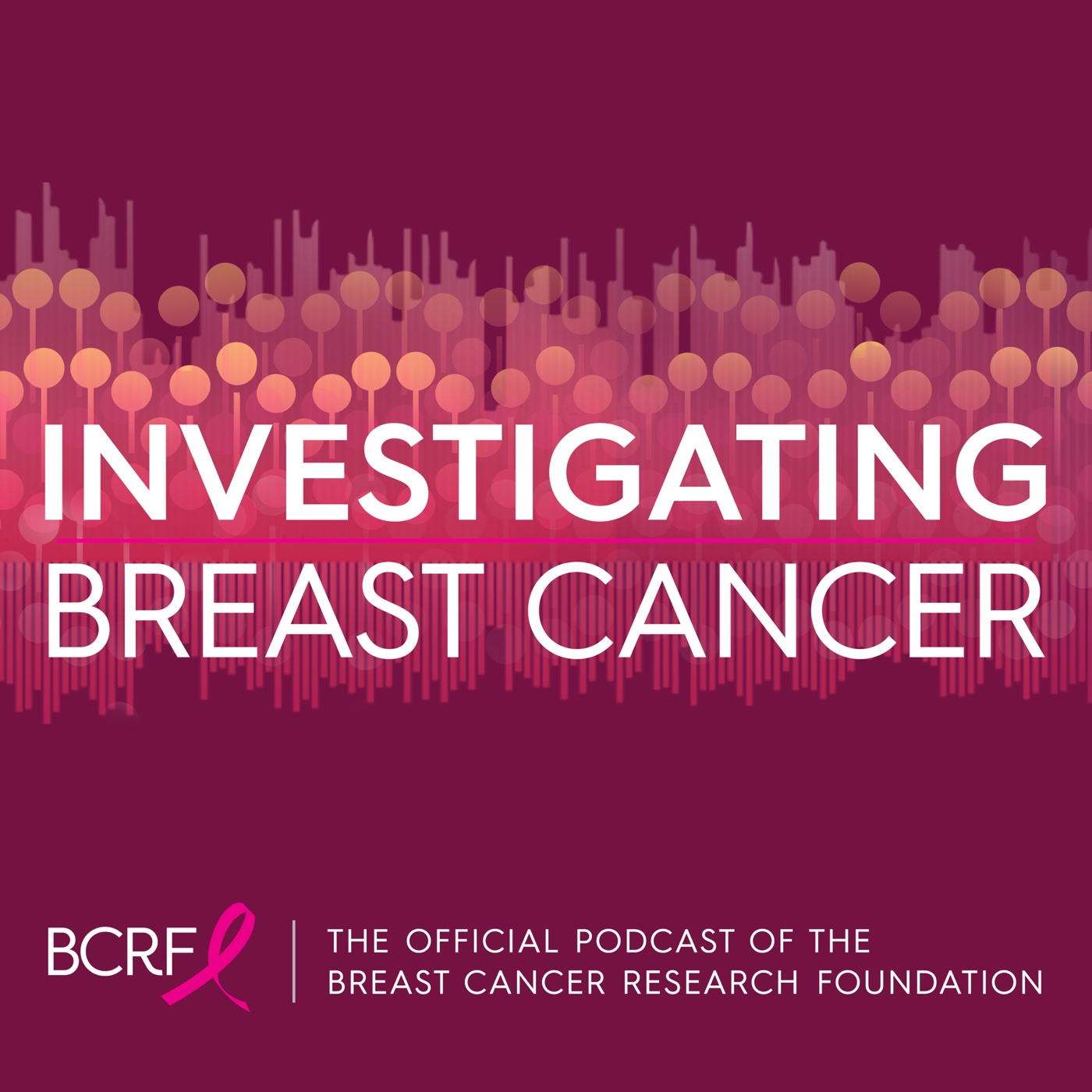Episodes
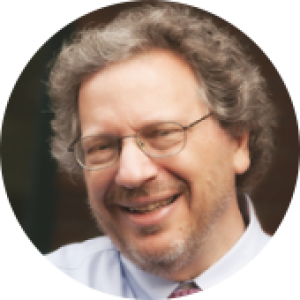
Sunday Sep 30, 2018
Studying breast cancer at the single cell level, with Dr. Michael Wigler
Sunday Sep 30, 2018
Sunday Sep 30, 2018
Breast cancer and technology. At first glance, they seem like totally separate topics. After this conversation, you’ll not only better understand the connection, but you’ll be waiting to learn what comes next.
As you’ll hear, thanks to technology developed by our guest Dr. Michael Wigler – in collaboration with BCRF colleague James Hicks – researchers can now study breast cancer at the single-cell level, setting the stage for the development of new diagnostic tools that will aid in therapeutic management of the disease.
Since then, Dr. Wigler has continued to go small – focusing on the interactions between cancer cells and the host microenvironment. It’s a fascinating approach.
Some background: Dr. Michael Wigler is the Russell and Janet Doubleday Professor of Cancer Research at the Cold Spring Harbor Laboratory in New York. He is a recipient of numerous awards and honors and is a member of the National Academy of Science and the American Academy of Arts and Sciences. Dr. Wigler also has been a BCRF Investigator since 1998.

Thursday Sep 06, 2018
Managing the stress of cancer treatments, with Dr. Annette Stanton
Thursday Sep 06, 2018
Thursday Sep 06, 2018
Today, we have an outstanding and thoughtful conversation on stress, breast cancer, and the science of survivorship. We all, of course, experience stress, work, family, money, but what about health, in particular, cancers like breast cancer? Obviously dealing with illness, indeed dealing with ongoing treatments and procedures brings stress to a whole new level.
How can women undergoing breast cancer treatments manage that stress? Perhaps more significantly, are there scientifically researched and proven approaches that not only help increase their health and wellbeing, but even improve the recovery process and results?
This is the important work that Dr. Annette Stanton does. Dr. Stanton is Professor of Psychology and Psychiatrist Bio-Behavioral Sciences at UCLA. She's also a senior research scientist at the UCLA Cousins Center for Psychoneuroimmunology and a member of the Center for Cancer Prevention and Control Research in the Johnson Comprehensive Cancer Center.
Through research, Dr. Stanton identifies factors that promote or impede psychological and physical health in adults and couples undergoing chronically stressful experiences with a focus on the experience of cancers of the breast, pancreas, eye, and lung. She then translates her findings into action by developing and testing approaches to enhance psychological and physical health over the course of the cancer trajectory.
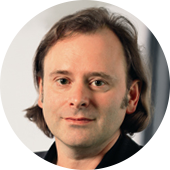
Monday Jul 30, 2018
Attacking cancer's weaknesses, with Dr. Alan Ashworth
Monday Jul 30, 2018
Monday Jul 30, 2018
As you’ll hear, Dr. Alan Ashworth is part of a team that developed something called PARP Inhibitors and, quite creatively, identified ways to use them to attack the weaknesses of various cancers, including breast cancer. As a recent new report noted, “with three recent FDA approvals, and a number of Phase 3 trials ongoing, the drugs are seeing a surge in interest.”
How do PARP Inhibitors work and what might they mean for attacking cancers’ weaknesses?
That’s just part of what I discussed with Dr. Ashworth.
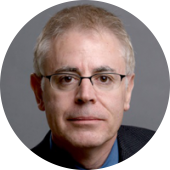
Saturday Jun 30, 2018
A Closer Look at Metastatic Breast Cancer with Dr. Robert Schneider
Saturday Jun 30, 2018
Saturday Jun 30, 2018
Most women who die of breast cancer die from metastatic disease, the spread of tumor cells to different parts of the body. Metastasis often results following treatment failure, but it also can occur decades after what was thought to be successful treatment. Currently, no curative therapies exist for metastatic breast cancer.
But today, the race to develop effective treatments for this disease is a key focus of some extraordinary research, much of it centering on cancer cells’ protein synthesis machinery and a protein called mTOR.
What’s the status of this research – and what might some practical outcomes look like?
I just had an incredibly thoughtful conversation with Dr. Robert Schneider. He’s the Associate Director of the NYU Cancer Institute, Director of Translational Cancer Research, and Co-director of the Breast Cancer Research Program at NYU School of Medicine. He’s also a BCRF Investigator since 2002.
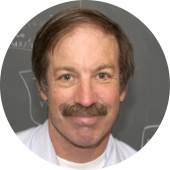
Wednesday May 30, 2018
Wednesday May 30, 2018
Well-designed randomized clinical trials may provide information about prevention strategies and effective treatments for women at risk of, or diagnosed with, breast cancer. A major limitation of clinical trials, however, is that results apply to the trial group as a whole, but not necessarily to each individual woman. That’s because individual responses are influenced by the patient's and the tumor's unique DNA, or genetic profile.
So how might researchers precisely identify risks for individual women based on protein and gene biomarkers to predict outcomes for breast cancer treatment or even prevention?
Dr. Jack Cuzick is a Director of the Wolfson Institute of Preventive Medicine in London. He is also head of the Centre for Cancer Prevention and John Snow Professor of Epidemiology at Queen Mary, University of London. In 2007, he was chosen by Thompson Scientific as one of the 12 hottest researchers in all of science. He was awarded the AACR Cancer Prevention Prize in 2012. He has been a BCRF Investigator since 2011.
As one cancer research site puts his impact best: “Professor Cuzick’s work on breast cancer treatment and prevention has been instrumental in reducing the number of women losing their lives to the disease.”
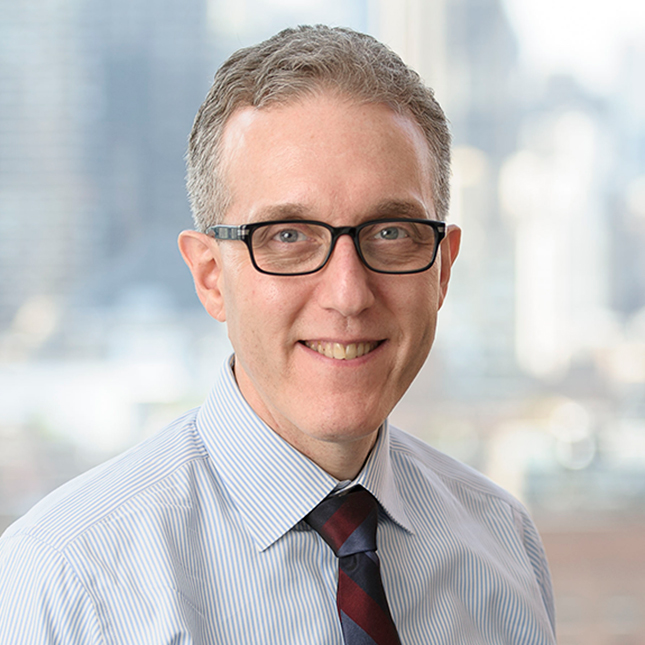
Monday Apr 30, 2018
All about immunotherapy with Dr. Jedd Wolchock
Monday Apr 30, 2018
Monday Apr 30, 2018
Immunotherapy – treating a disease by inducing, enhancing, or suppressing an immune response – remains one of the biggest hopes in terms of potentially finding a breast cancer cure. And yet, it also remains an incredibly challenging discipline. What works for one type of cancer may not for another.
Why is that? What lessons can researchers take from successful cases – melanoma, lung or other cancers – and apply to breast cancer? And where, exactly, are researchers in finding an immunology answer for breast cancer?
To find out, I spoke with one the nation’s leading researchers in the field, Dr. Jedd Wolchok. Dr. Wolchok is Chief of the Melanoma and Immunotherapeutics Service at Memorial Sloan Kettering Cancer Center. A BCRF Investigator since 2011, he has helped establish the center as a leader in the discovery and treatment of cancers with novel immunotherapies. He has been at the forefront of cancer immunotherapy, as an active clinician scientist exploring innovative strategies in laboratory models and as a principal investigator in numerous pivotal clinical trials. He’s also, as I learned, proficient with the tuba. I confess – I didn’t see that one coming.

Thursday Mar 22, 2018
Innovations in tracking cancer through the body with Dr. Peter Kuhn
Thursday Mar 22, 2018
Thursday Mar 22, 2018
What if we could track where the cancer is moving through the body, not by evasive biopsies, but rather through a common procedure we go through nearly anytime we visit a doctor. A simple blood draw. That's just one of the innovations I discussed with Dr. Peter Kuhn. It was a terrific conversation.
Dr. Kuhn is not your typical researcher, part scientist. Kuhn's a physicist by training and part entrepreneur. That mix of disciplines comes across in how he thinks and how he approaches his work. It clearly drives his unique approach to helping find a breast cancer cure, not to mention the 16 patents that have been filed as a result of his research.
Some background. Dr. Kuhn is the Dean's Professor of Biological Sciences and Professor of Medicine and Engineering, as well as a founding member of the Michelson Center for Convergent Bio-sciences at USC. He's a founding member of a new institute of convergent sciences and Director of the Southern California Physics Oncology Center. Dr. Kuhn has been a BCRF investigator since 2013. Dr. Kuhn's research is shedding new light on how cancer spreads through the body and evolves over time.
This new science should lead to a personalized care strategy that is biologically informed and clinically actionable. Before my conversation with Dr. Kuhn though, one last item. An ask from me to you. I hope you like these Investigating Breast Cancer conversations and if so, I'd appreciate if you'd take a moment, go to I tunes and if you're so moved, leave a five star review. The ratings really matter. They go a long way to helping other people find the podcast. Thanks for considering.
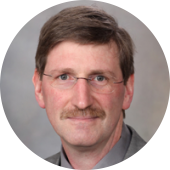
Friday Jan 19, 2018
Genetic variants that may cause breast cancer, with Dr. Fergus Couch
Friday Jan 19, 2018
Friday Jan 19, 2018
|
My guest is Dr. Fergus Couch who is, among many other roles, Professor and Chair of the Division of Experimental Pathology and Laboratory Medicine at the Mayo Clinic. Dr. Couch works on the genetics of breast cancer, discovering and understanding the connections of inherited genetic variance in cancer susceptibility genes. He's also a BCRF Grand Tee since 2007. Dr. Couch has more than 300 publications, but the one we focused on came just a few months ago and it was an incredibly big deal. |
|
The outcomes were published in the prestigious publications Nature and Nature Genetics. Dr. Fergus and other scientists reported findings by a major international consortium identifying an incredible 65 previously unknown common genetic variants that predisposed individuals to breast cancer. They also found seven others that are specific for triple negative breast cancer, the highly aggressive forms of the disease. In all, that's 72 new genetic variants that contribute to breast cancer risk. The numbers that drove the research are remarkable. Over 500 researchers, from 300 institutions, in six continents contributed genetic data from some 275,000 women, 146,000 of whom had been diagnosed with breast cancer.
|
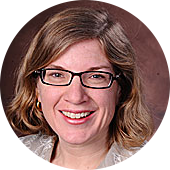
Friday Jan 05, 2018
How the environment impacts breast cancer, with Dr. Mary Beth Terry
Friday Jan 05, 2018
Friday Jan 05, 2018
|
While much of the focus around breast cancer rightfully looks at preexisting genetics, an important part of finding a cure also means looking at what's happening outside the body, specifically the environment. How does the air we breathe and chemicals we ingest every day potentially put us more at risk for the disease? What can be done to prevent it? As you'll hear, the work is a blend of intensely modern science and old-fashioned, hard-nosed research. |
|
Dr. Mary Beth Terry is a cancer epidemiologist and professor at Columbia University's Mailman School of Public Health. Dr. Terry's work centers on improving breast cancer risk models for high-risk families, finding ways to measure exposure to chemical pollutants, and non-genetic changes to DNA that can be a result of both biologic and environmental exposures. She's also a BCRF grantee since 2005. |
|
How might our daily environment impact the potential for breast cancer? That's what I asked Dr. Terry.
|
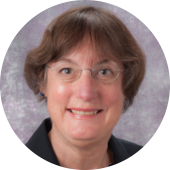
Thursday Oct 19, 2017
How and why cancer recurs with Dr. Nancy Davidson
Thursday Oct 19, 2017
Thursday Oct 19, 2017
My conversation today is with Dr. Nancy Davidson, simply one of the leading breast cancer researchers we have. Dr. Davidson characterizes herself as a physician scientist. She directly connects the human aspect of what she does, working with patients, with her research that has delivered key discoveries that are now common practice in breast cancer care. Dr. Davidson's current research dives into one of the most challenging areas of breast cancer or any cancer, really, recurrence. For individuals who have fought and won their cancer battles Dr. Davidson is looking at how and why cancer recurs, and importantly, how might that recurrence be prevented in the first place.
This is the most recent of a lifetime of highly consequential research, care, and discovery that's defined Dr. Davidson's career. Some highlights. Dr. Davidson is senior vice president of the clinical research division at the Fred Hutchinson Cancer Research Center in Seattle. She is president and executive director of the Seattle Cancer Care Alliance as well as the head of the Department of Medicine in the Division of Medical Oncology at the University of Washington. She is the immediate past president of the American Association of Cancer Research and a past president of the American Society of Clinical Oncology. Dr. Davidson is a member of the BCRF scientific advisory board and has been a BCRF grantee since 1998.
We discussed all of that as well as one question from her father years ago that may have denied society a modern day Indiana Jones but instead gave us one of the leading physician scientists focused on cancer and breast cancer that we have. Here's our conversation.

